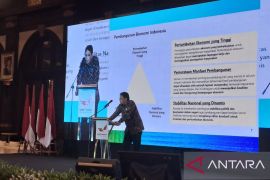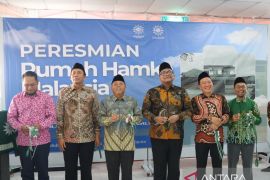They view the interdependence formed among nations due to economic globalization as a threat and use the pretext of security to create scientific and technological barriers and sever industrial and supply chains, which causes impacts on global economic development and stability.
The mindset of zero-sum game characterized by binary opposition has long been a thing of the past, and a genuinely secure world should be one featuring deep integration and interdependence. Creating division and confrontation with the zero-sum mentality goes against the goal of maintaining security and only leads to collective insecurity.
In 1996, American columnist Thomas Friedman proposed the theory of "Golden Arches Theory of Conflict Prevention," suggesting that two countries that were sufficiently developed to support a McDonald's would not fight each other because the benefits brought by economic globalization would outweigh the desire for war.
At that time, economic globalization was widely seen as a positive force beneficial to global development and security. However, today, with the trend of economic globalization, some individuals have developed an unfounded "cooperation phobia," constantly seeing imaginary threats.
In this world shaped by economic globalization, goods, capital, people, and information flow around the world ceaselessly, and interdependence among nations has become the norm. Viewing the world through the mindset of zero-sum game and baselessly hyping so-called security threats are severely disconnected from realities and deviate from the historical trend of development.
Every country has security needs, but abusing the concept of security will only harm a country's own security in the long run. Once obsessed with the so-called absolute security, and arbitrarily expanding the scope of security, country would incline to closed-door policies and exclusion, resulting in misallocation and waste of development resources. Externally, it is prone to creating "imaginary enemies" and getting caught in zero-sum games, undermining normal international cooperation.
Past and current experiences show that countries engaging in mutually beneficial cooperation based on market principles not only contribute to each other's development but also help foster healthy and stable relationships.
Over the past few decades, the international system has maintained overall stability and order, which is to a large extent attributed to the continuously improving mutually beneficial cooperation amidst the tide of economic globalization.
Distorting and undermining mutually beneficial cooperation between countries in the name of so-called security will only exacerbate misunderstandings, erode mutual trust, disrupt international relations, and create security risks. From a long-term perspective, a world influenced by unilateralism and protectionism will be even more insecure.
In today's world, the interests, prosperity and security of countries are closely intertwined. The world will never return to isolation. When considering security issues in the context of economic globalization, one must maintain an objective and dialectical perspective.
Firstly, it is important to abandon the misconception of absolute security and adhere to the concept of common security. Adopting a double standard of demanding other countries to open up while closing one's own doors in the name of "de-risking" will only hinder both development and security, and ultimately lead to backfiring.
Secondly, all parties should recognize that seeking security and promoting cooperation are not contradictory, and that absence of cooperation is the biggest risk and lack of development the biggest insecurity. Risks should be reasonably defined and prevented, without equating interdependence with insecurity. Major economies that have a significant impact on the world economy, in particular, should balance security and open development with a rational attitude.
Thirdly, in the face of problems that arise in economic and trade cooperation, it is important to stop turning business relations into political, security or ideological issues. Instead, countries should strengthen dialogue, manage and resolve the issues in accordance with relevant international rules.
For emerging technologies such as artificial intelligence, all parties should enhance communication and coordination on reasonable security concerns, effectively safeguarding security and promoting development through global governance based on extensive consultation, joint contribution and shared benefits.
In today's world, what countries truly need is mutual achievement, rather than zero-sum games. The international community should jointly promote a universally beneficial and inclusive economic globalization, resolutely oppose the attempt to roll back globalization and abuse the concept of security, and oppose all forms of unilateralism and protectionism. This way, people of all countries will be able to share in the benefits of economic globalization and global growth.
Source: People's Daily
Reporter: PR Wire
Editor: PR Wire
Copyright © ANTARA 2024












